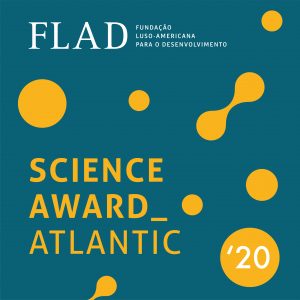
The first phase of applications for the largest research award focusing on the Atlantic, exclusively for scientists working in Portugal, is closed.
Why the Atlantic?
Research about the Atlantic is essential to understand very diverse and multidisciplinary areas with an impact on the sustainability of Planet Earth and on our quality life, from the interaction between oceans, atmosphere, and space, to climate change, natural disasters, and sustainability.
What’s our goal? To produce technology and promote the new generation of Portuguese scientists.
As part of a strong investment in Science and Technology from FLAD, it is important that this research can develop practical results, such as the creation of engineering and technologies, that facilitate our understanding and exploration of Atlantic ecosystems.
In addition, FLAD aims to provide support and distinguish researchers initiating their careers, thereby promoting the promising new generation of researchers residing in Portugal, always with close collaboration with the main research groups in the USA.
Key research areas for the 2020 edition
- Sustainable energy systems for islands and isolated areas;
- New marine renewable energies;
- Sustainable mobility and logistics, in the context of growing digital transformation;
- Observation methods/monitorization: low-cost satellite systems, advanced sensor devices, artificial intelligence, data science;
- Aquatic robots and automated transports that promote Atlantic interactions;
- Technologies to make oceans healthy and clean;
- Technologies to help adapt the Atlantic region to climate change and natural disasters.
Prize
The prize has a maximum value of 300,000 euros for a maximum of 3 years, which corresponds to 100,000/year.
Jury
The evaluation is made by a jury of excellence composed of five elements.
The scientific committee, which is part of that same jury, is composed of:
- Professor Miguel Miranda, Professor at the Faculty of Sciences from the University of Lisbon, and president of IPMA. Specialist in Geomagnetism, Marine Geophysics, and Natural Risks, with a special focus on Tsunamis;
- Professor Pedro Camanho, Professor at the Faculty of Engineering from the University of Porto, president of LAETA and guest scientist at NASA. Specialist in Composite Materials and in the development of computational models for the design of Aerospace systems.
Candidates profile
- Ph.D., at most 5 years ago;
- Be associated with a research center recognized by FCT (Science and Technology Foundation);
- Do research in Portugal, independently, autonomously and with scientific quality;
- Include a research interaction with a U.S. entity.
Evaluation
The prize will be awarded after an analysis of two-stage applications:
- Stage 1: The first phase of applications opens between November 20th and December 20th, where the applicant’s scientific curriculum will be reviewed, together with the evaluation of the main ideas presented in the research proposal.
- Phase 2: The highest-ranked candidates in the first phase are called to participate in the second phase of the application. It will be necessary to submit the research plan proposal for the 3-year duration of the award, between 22nd January and 22nd February. If some more assessment is needed, there is the possibility of conducting a final interview.
The results will be announced on March 31th of 2020.
Applications
The deadline for the delivery of applications ended on December 20th. They are now being examined and we will soon start the second phase. We advise you to read the notice of this open call (Notice – FLAD Science Award Atlantic), where you can find all the details about the award.
Follow us through this website and our social media to stay briefed about the selection process.
The future is in the Atlantic!
What candidates are we looking for?
Prof. Miguel Miranda, a member of the scientific committee of this award, explains what will be taken into account when evaluating applications.
What is the importance of this award?
Prof. Pedro Camanho, a member of the scientific committee, analyses the impact of this investment on the Atlantic within the scientific community.
Related Posts
3 de July, 2024
B+S Bispo D. Manuel Ferreira Cabral School, from Madeira, wins Atlântico Junior Award
Students win with a project to create…
29 de May, 2024
Five Fellows Selected for the Fulbright/FLAD Scholarship
Master's students will undertake a…
29 de May, 2024
FLAD Science Award Atlantic 2024: applications from June 1st
Young researchers can apply until June…



